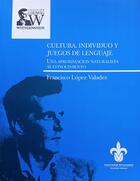
Since the beginning of the twentieth century, there has been a crisis in knowledge, characterized by the conflict between the logical-rational forms of science, technology and mathematics, and the 'world of values', in which art, religion and morality are inscribed. In this book, an alternative analysis is proposed, based on naturalistic premises and Wittgenstein's philosophy of language games.
Each mode of knowledge is logically autonomous (it is characterized by its objectives and the way it is produced and validated); In practice, however, they are interwoven in a 'cultural matrix' that enables, delimits and regulates the interactions of individuals with reality, within the functional framework of a way of life. The concept of 'cultural cycles' is proposed to articulate the processes of creation, dissemination, institutionalization and objectification of knowledge.






